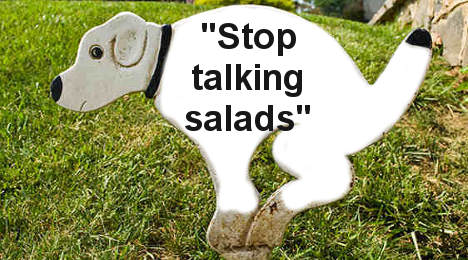So you have made enough progress in the literal portion of the French language to finally be able to chat with your colleagues at the water cooler or coffee machine.
But, like the man-eating shark lurking in the waters of the film Jaws, but there are other perils awaiting you dear students of French – idioms that just don't translate.
And if you don't know them, the chances are you could end up in a pickle.
If you want to tell someone that they "have a screw lose" or that something is "no big deal", it's no use translating your English expressions because you will just end up looking silly.
You need the Gallic versions.
So to help you on your way we've picked ten strange expressions in French that you could hear at dinner parties or work and deciphered them into English. Click below.
Top 10 bizarre French expressions translated
What are your favourite bizarre French expressions? Let us know in the comments section below.
SEE ALSO: Top 12 French expressions you won't learn at school




 Please whitelist us to continue reading.
Please whitelist us to continue reading.
Member comments